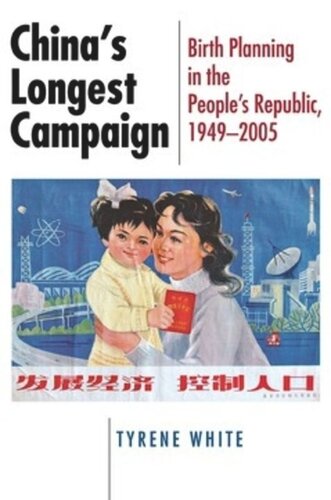

Most ebook files are in PDF format, so you can easily read them using various software such as Foxit Reader or directly on the Google Chrome browser.
Some ebook files are released by publishers in other formats such as .awz, .mobi, .epub, .fb2, etc. You may need to install specific software to read these formats on mobile/PC, such as Calibre.
Please read the tutorial at this link: https://ebookbell.com/faq
We offer FREE conversion to the popular formats you request; however, this may take some time. Therefore, right after payment, please email us, and we will try to provide the service as quickly as possible.
For some exceptional file formats or broken links (if any), please refrain from opening any disputes. Instead, email us first, and we will try to assist within a maximum of 6 hours.
EbookBell Team

0.0
0 reviewsIn the late 1970s, just as China was embarking on a sweeping program of post-Mao reforms, it also launched a one-child campaign. This campaign, which cut against the grain of rural reforms and childbearing preferences, was the culmination of a decade-long effort to subject reproduction to state planning. Tyrene White here analyzes this great social engineering experiment, drawing on more than twenty years of research, including fieldwork and interviews with a wide range of family-planning officials and rural cadres.White explores the origins of China's "birth-planning" approach to population control, the implementation of the campaign in rural China, strategies of resistance employed by villagers, and policy consequences (among them infanticide, infant abandonment, and sex-ratio imbalances). She also provides the first extensive political analysis of China's massive 1983 sterilization drive. The birth-planning project was the last and longest of the great mobilization campaigns, surviving long after the Deng regime had officially abandoned mass campaigns as instruments of political control.Arguing that the campaign had become an indispensable institution of rural governance, White shows how the one-child campaign mimicked the organizational style and rhythms both of political campaigns and economic production campaigns. Against the backdrop of unfolding rural reforms, only the campaign method could override obstacles to rural enforcement. As reform gradually eroded and transformed patterns of power and authority, however, even campaigns grew increasingly ineffective, paving the way for long-overdue reform of the birth-planning program.